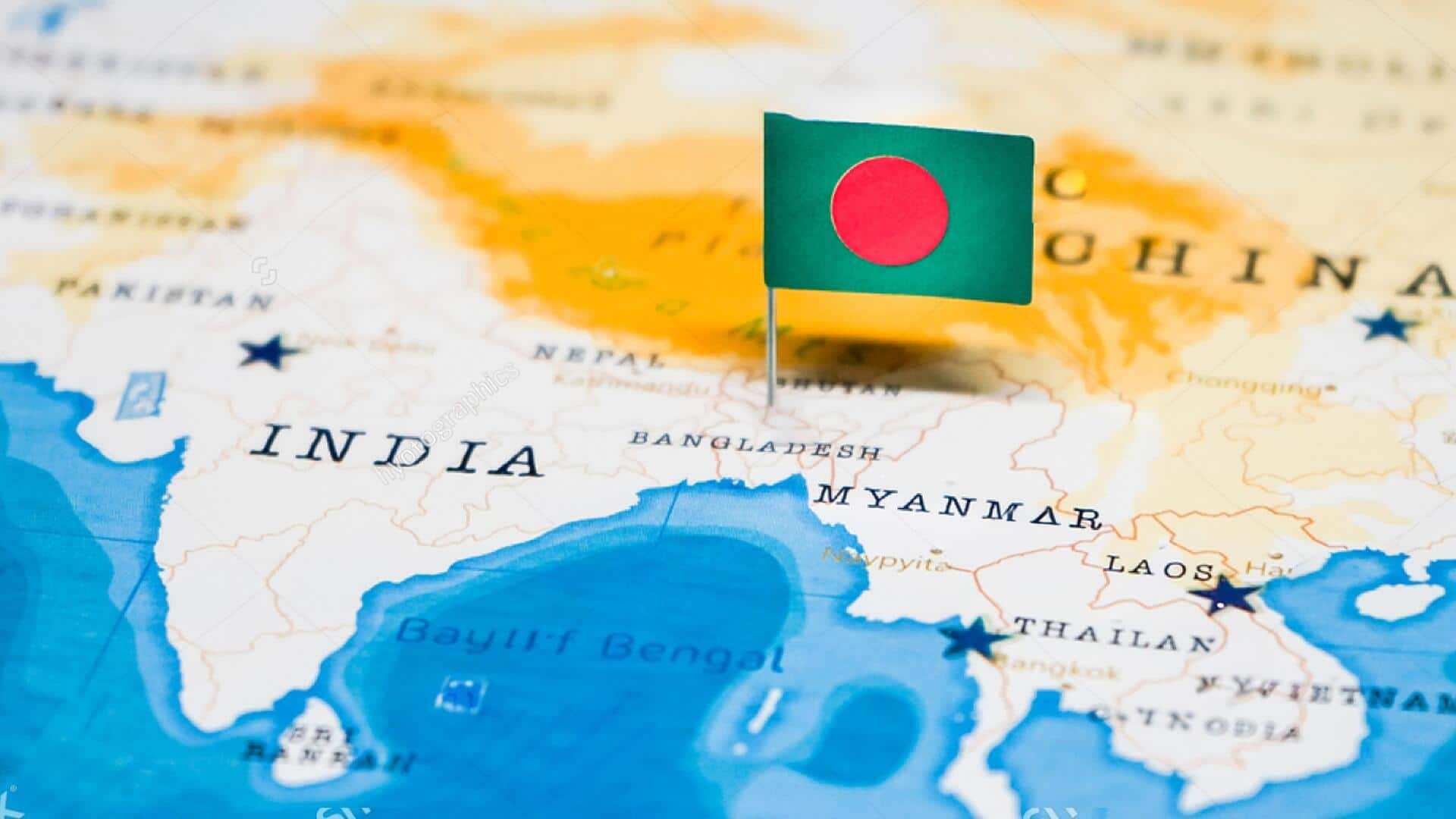
Bangladesh crisis: India strengthens borders; Jaishankar briefs Parliament on situation
What's the story
Amid the turmoil in Bangladesh after Prime Minister Sheikh Hasina's resignation on Monday, the Border Security Force (BSF) has increased security and deployed additional personnel along the international border in Tripura. Tripura shares an 856-kilometer-long border with Bangladesh. A senior Border Security Force official reportedly said that security measures along the border have been tightened and alerts have been issued to all personnel.
Context
Why does this story matter?
Hasina fled the country after resigning amid violent protests. She arrived at Hindon Air Force base in Ghaziabad, Uttar Pradesh on Monday night, where she was received by National Security Advisor Ajit Doval. Reports suggest that Hasina may seek political asylum in London. Until the United Kingdom grants her request, she is expected to stay in India.
MPs briefed
Jaishankar chairs all-party meeting
The BSF official said, "We are closely monitoring the border situation. Given the semi-porous nature of our boundary and the unfenced areas, we have bolstered security. An alert from the Centre was received." Meanwhile, Foreign Minister S Jaishankar on Tuesday chaired an all-party meeting to discuss the collapse of Hasina's government and the military takeover in Bangladesh.
In House
Jaishankar briefs Parliament
Jaishankar briefed party leaders on the situation in the violence-stricken nation and outlined the measures taken by the Indian government. According to reports, the foreign minister also discussed strategies to manage relations with the new regime in Bangladesh while supporting the ousted leader. The foreign minister is also briefing the Parliament on the situation and India's preparation in response.
Statement
India to prioritize safety of Hindu minorities in Bangladesh
Meanwhile, India has decided to prioritize the safety of Hindu minorities in Bangladesh amid reports of atrocities. Jaishankar said, "8,000 students have returned following the government advisory. The government is in contact with Indian nationals, and the High Commission is operational." He added that the government is in "wait and watch" mode and remains in communication with the Bangladesh Army.
Background
Bangladesh political crisis
The student protests—ongoing since July—initially called for the abolition of civil service job quotas but have since grown into a broader anti-government movement. The unrest stems from a controversial quota system that reserves up to 30% of government jobs for relatives of veterans from the 1971 independence war. Protesters argue that this system is discriminatory and benefits former PM Hasina's Awami League party.